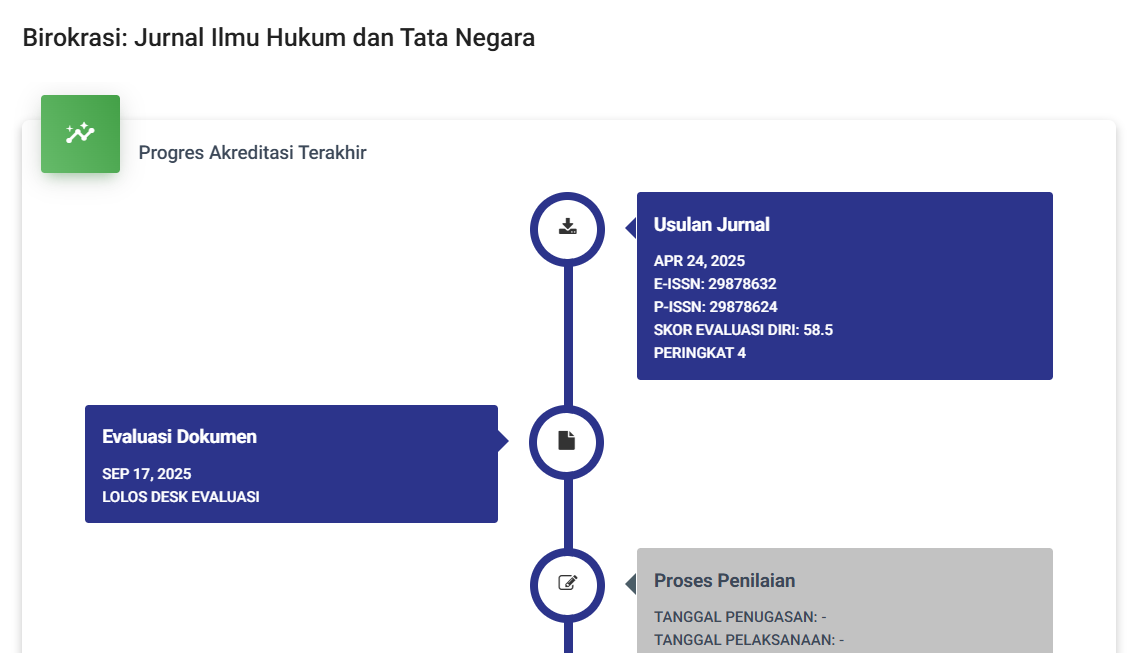Konsep Dan Urgensi Demokrasi Pancasila
DOI:
https://doi.org/10.55606/birokrasi.v2i3.1313Keywords:
Concept, Urgency, Pancasila DemocracyAbstract
Democracy as a system has become an alternative in various social and state activities in several countries. The reason for making democracy a social and state system is because almost all countries in the world have made democracy a fundamental principle. Apart from making democracy a principle of statehood, it has essentially provided direction for the role of society in running the state as its highest organization, so that citizens need correct knowledge and understanding about democracy. Democracy based on Pancasila shows how important harmony is between democratic principles and Indonesian values. This reflects the close connection between Pancasila as the state ideology and democratic principles in the Indonesian government system. The research method used is a literature review, by collecting all material related to the discussion from books, journals, written works and others. The results of the collection show that the concept and urgency of democracy originating from Pancasila is seen from the people who are led by wisdom in deliberation/representation: Pancasila emphasizes the importance of people's participation in decision making, both directly and through representatives, based on wisdom. Deliberation for consensus : The principle of deliberation in Pancasila underlines the importance of reaching agreement through discussion and consultation, which is the essence of consensual democracy. Social justice for all Indonesian people: Democracy in Pancasila must have a positive impact on all levels of society and guarantee social justice. The Urgency of Democracy in Pancasila People's Participation: The concept of democracy in Pancasila ensures that the people have an active role in the decision-making process, thereby strengthening the rights and responsibilities of citizens. Protection of Human Rights: Democracy originating from Pancasila provides better protection for human rights, such as freedom of opinion, assembly and religion. Preventing Oligarchy: Pancasila encourages the involvement of more people in politics, thereby preventing the concentration of power in the hands of a few individuals or groups (oligarchy). Balance Between Freedom and Justice: Democracy in Pancasila prioritizes a balance between individual freedom and social justice, thereby avoiding abuse of freedom that is detrimental to society.
References
Alfian. (1990). Pancasila sebagai ideologi dalam kehidupan politik. Jakarta: Perum Percetakan Negara.
Asshiddiqie, J. (2005). Kemerdekaan berserikat, pembubaran partai politik dan Mahkamah Konstitusi. Jakarta: Konpress.
Asshiddiqie, J. (2007). Pokok-pokok hukum tata negara Indonesia pasca reformasi. Jakarta: PT Bhuana Ilmu Populer Kelompok Gramedia.
Asshiddiqie, J. (2009). Pengantar ilmu hukum tata negara. Jakarta: Rajawali Press.
Assiddiqie, J. (2011). Hukum tata negara & pilar-pilar demokrasi. Jakarta: Sinar Grafika.
Budiardjo, M. (2008). Dasar-dasar ilmu politik (Cetakan ketiga). Jakarta: Gramedia Pustaka Utama.
Buyung, N. A. (2010). Pikiran dan gagasan: Demokrasi konstitusional. Jakarta: Kompas.
Dahl, R. A. (1992). Demokrasi dan para pengkritiknya. Jakarta: Yayasan Obor Indonesia.
Dede, M., & Paskarina, C. (2008). Demokrasi dan politik desentralisasi. Yogyakarta: Graha Ilmu.
Hatta, M. (1977). Menuju negara hukum. Jakarta: Idayu Press.
Hatta, M. (1998). "Indonesia merdeka" dalam Karya lengkap Bung Hatta, Buku I: Kebangsaan dan kerakyatan. Jakarta: Penerbit LP3ES.
Held, D. (1994). Prospects for democracy, North, South, East, West. Cambridge: Polity Press and Blackwell.
Kelsen, H. (1995). Teori hukum murni. Jakarta: Rimdi Pers.
Kusnardi, M., & Ibrahim, H. (1978). Pengantar hukum tata negara Indonesia. Jakarta: Pusat Studi Hukum Tata Negara FHUI.
Latif, Y. (2011). Negara paripurna: Historisitas, rasionalitas dan aktualitas Pancasila. Jakarta: Pustaka Gramedia.
Manan, B. (1996). Kedaulatan rakyat, hak asasi manusia dan negara hukum. Jakarta: Gaya Media Pratama.








